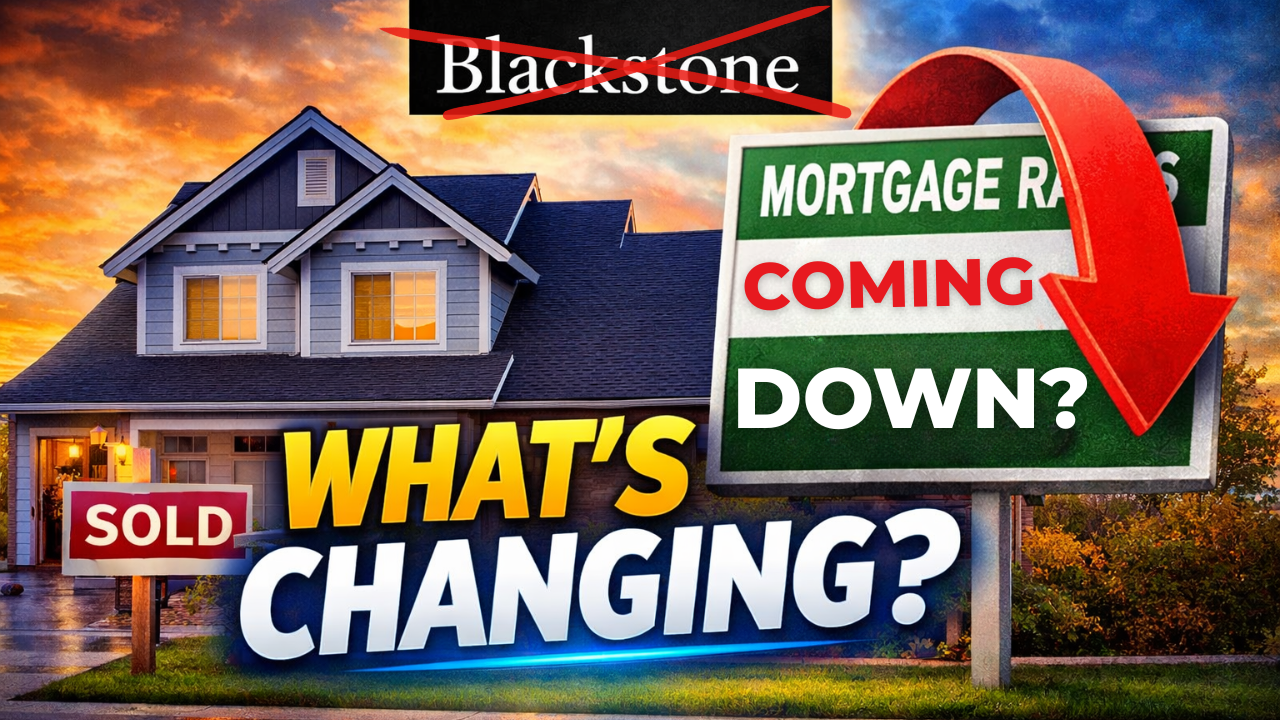When you’re considering taking out a loan, it’s important to understand the different types of borrowing options available to you. Two popular options for homeowners are the home equity loan and the second mortgage. While both are secured by your home, they function differently and serve different purposes. Whether you’re looking to fund home improvements, consolidate debt, or access cash for other needs, understanding the key differences between these loans is essential.
Here’s what you’ll learn in this blog:
- The difference between home equity loan and second mortgage, and how each works.
- The pros and cons of home equity loans and second mortgages, so you can make the best choice.
- How to decide between a home equity loan and a HELOC, based on your financial goals and needs.
What Is a Second Mortgage?
A second mortgage is simply a type of loan that uses your home as collateral, in addition to your first mortgage. It’s a way to tap into the value that’s already built up in your home, also known as your home equity. Think of it as borrowing against the portion of your home you’ve already paid off.
There are two main types of second mortgages:
- Home Equity Loans: These loans give you a lump sum of cash, with a fixed interest rate and fixed monthly mortgage payments.
- Home Equity Line of Credit (HELOC): This works more like a credit card. You get a revolving credit line that you can borrow from as needed, usually with a variable interest rate.
While both options use your home’s equity as collateral, it’s important to note that if you fail to repay the loan, you could risk losing your home to the mortgage lender. So, it’s crucial to carefully consider whether a second mortgage is the right choice for you.
What Is a Home Equity Loan?
A home equity loan is another type of second mortgage that allows you to borrow a lump sum of money, using your home as collateral. It’s a straightforward lump-sum loan with a fixed interest rate and monthly payments, making it easier to budget for over time.
Home equity loans are often used for home renovations, consolidating credit card debt, or paying for major expenses. Since you’re borrowing against the value of your home, you can typically borrow a significant amount, depending on how much equity you have.
The key benefit of a home equity loan is its predictability. With a fixed interest rate, your payments remain the same throughout the loan term. This can give you peace of mind, knowing exactly how much you’ll pay each month.
However, keep in mind that because you use your home equity as collateral, failing to repay the loan could result in losing your property. It’s important to ensure you’re financially ready to take on this commitment before going this route.

Key Differences Between Home Equity Loan and Second Mortgage
When you’re looking into borrowing against the equity in your home, it’s important to understand the differences between a home equity loan and a second mortgage. While both options let you use the equity of your home as collateral, they each serve different needs and have their own unique features.
Here’s a detailed look at the differences between second mortgages and home equity loans:
- Loan Structure: A home equity loan gives you a lump sum of cash upfront, which you repay over a fixed term. It’s ideal for big expenses and commonly used for home improvements or paying off debt. A second mortgage, however, is a broader term that includes both home equity loans and home equity lines of credit (HELOCs). HELOCs work like a credit card — you get a revolving line of credit that you can borrow from as needed.
- Interest Rates: With a home equity loan, the interest rate is usually fixed, meaning you’ll have the same monthly payment for the life of the loan. This makes budgeting easier. On the flip side, HELOCs typically come with a variable interest rate, meaning your payments can change over time based on market conditions.
- Repayment Terms: For a home equity loan, you’ll have a fixed repayment plan — predictable payments over a set period, so you always know how much to pay each month. With a HELOC, you can borrow money as needed, and for some time, you might only pay interest (in the draw period). After that, you start paying both principal and interest.
- Usage: A home equity loan is great for a one-time large purchase or project. For example, you might use it for a major home renovation. A second mortgage (particularly a HELOC) is more flexible — it’s ideal for ongoing expenses or projects where you might not know exactly how much you’ll need.
Comparison Table: Home Equity Loan vs. Second Mortgage
Feature | Home Equity Loan | Second Mortgage (HELOC) |
Loan Structure | Lump sum loan amount, paid off in fixed payments | Revolving line of credit, like a credit card |
Interest Rate | Fixed interest rate, stable monthly payments | Variable interest rate, payments may fluctuate |
Repayment Terms | Fixed repayment schedule with equal monthly payments | Flexible — pay interest only initially, then both principal and interest |
Ideal Use | Major, one-time expenses (home renovations, debt consolidation) | Ongoing expenses or long-term projects |
Access to Funds | One-time disbursement of funds | Ongoing access to funds as needed |
Risk | Risk of losing your home if you default | Risk of losing your home if you default |
Understanding these differences can help you choose the best option for your needs. If you need a large, one-time amount for a home renovation or debt consolidation, a home equity loan might be the way to go. However, if you want more flexibility and ongoing access to cash, a HELOC could be a better fit.
Important Statistics and Trends
Understanding the current trends and statistics surrounding a second mortgage and a home equity loan lets you make a more informed decision. Let’s take a look at some of the key numbers that highlight how these loans are being used in today’s market:
- Home Equity Loan Use: According to the latest data, HELOCs and home equity loans in the U.S. have increased by nearly 30% between 2021 and 2022. This reflects the growing popularity of these loans for home improvements, debt consolidation, and other major expenses.
- Interest Rates Trends: Interest rates on home equity loans and second mortgages have fluctuated in recent years. While home equity loans still have relatively lower interest rates, HELOCs (which come with variable rates) have seen more significant changes. In May 2024, the average interest rate on a home equity loan was around 8.67%, while the average for a HELOC was closer to 10%. This is important to keep in mind, as the variable rate on a HELOC can increase over time.
- Home Equity Growth: Homeowners in the U.S. have seen their equity grow significantly. In fact, as of 2023, the average homeowner’s equity had grown by $55,000 from the previous year, thanks to rising home values. This means more homeowners are likely to consider borrowing against their equity, with home equity loans and second mortgages becoming more attractive options.
- Rising HELOC Popularity: Recent surveys show that HELOCs are becoming increasingly popular for things like home improvement projects. Nearly 40% of homeowners with a HELOC used it for home renovations, indicating that many people view these loans as a flexible option for improving their homes.
These statistics give a clear picture of the increasing demand for home equity loans and second mortgages, especially as homeowners tap into their home’s equity. Knowing these numbers helps you make better choices when considering personal loans for home improvements or other major expenses.

Frequently Asked Questions (FAQs)
Can I have both a home equity loan and a HELOC?
Yes, you can have both a home equity loan and a HELOC, as long as you meet the lender’s qualifications. However, keep in mind that your home serves as collateral for both loans, so it’s important to ensure you can manage both payments.
What happens if I default on a second mortgage?
If you default on a second mortgage, the lender can foreclose on your home, just like with your primary mortgage. This means they could sell your home to recover the money you owe. It’s essential to make sure you can afford the payments before taking out another loan.
Can a second mortgage help me pay off credit card debt?
Yes, a second mortgage, especially a home equity loan, can be a great way to pay off credit card debt. The interest rate on a home equity loan is usually lower than credit card rates, which can help you save money in the long run.
How does a second mortgage affect my credit score?
Taking out a second mortgage can impact your credit score in a few ways. If you make timely payments, it could improve your score. However, missing payments or borrowing more than you can afford could harm your credit score.
Can I use a second mortgage for business purposes?
In most cases, second mortgages are intended for personal use, such as home improvements or debt consolidation. If you’re considering using one for a business, you should talk to your lender first to make sure it aligns with their policies.
Wrapping Up: How Morgan Financial Can Help You Choose the Right Loan
Understanding the difference between a home equity loan and a second mortgage is crucial when deciding the best financial option for your needs. Whether you’re planning to make home improvements, pay off credit card debt, or cover an unexpected expense, these loans can be powerful tools, but it’s important to choose the right one for your financial situation.
Here’s a quick recap of what we’ve covered:
- Home equity loans offer a lump sum with fixed payments, ideal for large, one-time expenses.
- HELOCs give you flexible access to funds as needed, with varying interest rates.
- Both are secured by your home, so it’s vital to ensure you can manage the payments before moving forward.
At Morgan Financial, we understand that choosing the right loan can feel overwhelming, but we’re here to help. Our team of experts will guide you through the process, helping you find the best loan with the most favorable terms for your situation. Whether you’re looking for a home equity loan, second mortgage, or other financing options, we’re here to make sure you get the support you need every step of the way.
Ready to take the next step? Contact Morgan Financial today to discuss your loan options and get started on your path to securing the funds you need with confidence. We’re here to help you make the best decision for your future.




